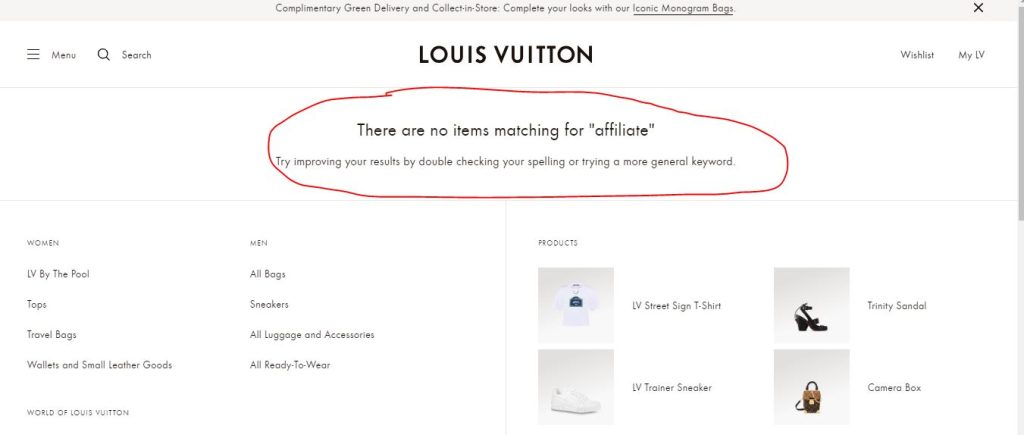reviews
Louis Vuitton affiliate program sign up: Real or Fake?

You have heard about the Louis Vuitton affiliate program and are wondering if it’s legit or fake. You are at the right place.
We will be sharing all the details you need and show you what we came up with after research.
What is Louis Vuitton?
Luxury fashion company Louis Vuitton is well known for its high-end goods, especially its recognizable luggage and accessories.
Louis Vuitton Malletier founded the business in 1854 in Paris, France, and it initially focused on creating and designing high-end trunks and suitcases.
Louis Vuitton has developed over time into one of the top luxury fashion companies in the world, offering a variety of goods including handbags, wallets, apparel, shoes, accessories, and fragrances.
The company is well-known for its iconic Damier pattern, which is made up of checkered squares, as well as its monogram canvas, which bears the LV initials and floral motifs. Due to their superior materials and careful attention to detail, Louis Vuitton products frequently carry a premium price. Louis Vuitton is synonymous with luxury, craftsmanship, and sophistication.
Louis Vuitton has a global presence, with boutiques and stores in major cities worldwide. The brand has also worked with several artists, designers, and celebrities to create limited-edition collections and one-of-a-kind pieces.
Is Louis Vuitton’s affiliate program Real or Fake?

As of August 2023, Louis Vuitton did not openly advertise an affiliate program on its official website.
Be wary of affiliate scams.
What are affiliate scams?
Affiliate scams refer to fraudulent schemes or deceptive practices in the context of affiliate marketing.
Affiliate marketing is a legitimate business model where individuals or businesses earn commissions by promoting and driving sales for products or services through unique affiliate links.
However, some unscrupulous individuals or organizations may engage in scams that exploit the affiliate marketing model for their own gain. Here are some common types of affiliate scams to be aware of:
- Pyramid Schemes: In a pyramid scheme, individuals are promised high returns for recruiting others into the program rather than for selling actual products or services. These schemes often collapse when new recruits become hard to find, leaving many participants with losses.
- Fake or Low-Quality Products: Scammers may create affiliate programs for products that are of poor quality, counterfeit, or non-existent. Affiliates promote these products to earn commissions, but the buyers end up receiving subpar or nonexistent items.
- Cookie Stuffing: This involves placing affiliate cookies on users’ computers without their consent, allowing scammers to claim commissions for sales they had no role in generating.
- Misleading Advertising: Some scammers may use misleading or deceptive advertising tactics to lure customers into clicking on their affiliate links. This can harm the credibility of legitimate affiliate marketers and create a negative user experience.
- Unreliable Tracking: Scammers may manipulate tracking systems or use unreliable software to inflate the number of clicks or sales attributed to their affiliate links, resulting in higher commissions.
- Unauthorized Use of Brands: Scammers may use well-known brand names or trademarks without permission to create fake affiliate programs, tricking affiliates into promoting their offers.
How to Avoid affiliate scams
We have outlined ways on how to avoid falling victim to affiliate scams. Check them out below.
- Research the company or product thoroughly before joining an affiliate program.
- Look for clear and transparent terms and conditions of the affiliate program.
- Be cautious of promises of quick and easy money with little effort.
- Check for contact information, customer support, and a legitimate website for the company.
- Trust your instincts. If something seems too good to be true, it probably is.
Remember that legitimate affiliate marketing can be a legitimate and profitable way to earn income online, but it’s essential to be vigilant and cautious to avoid falling prey to scams.








